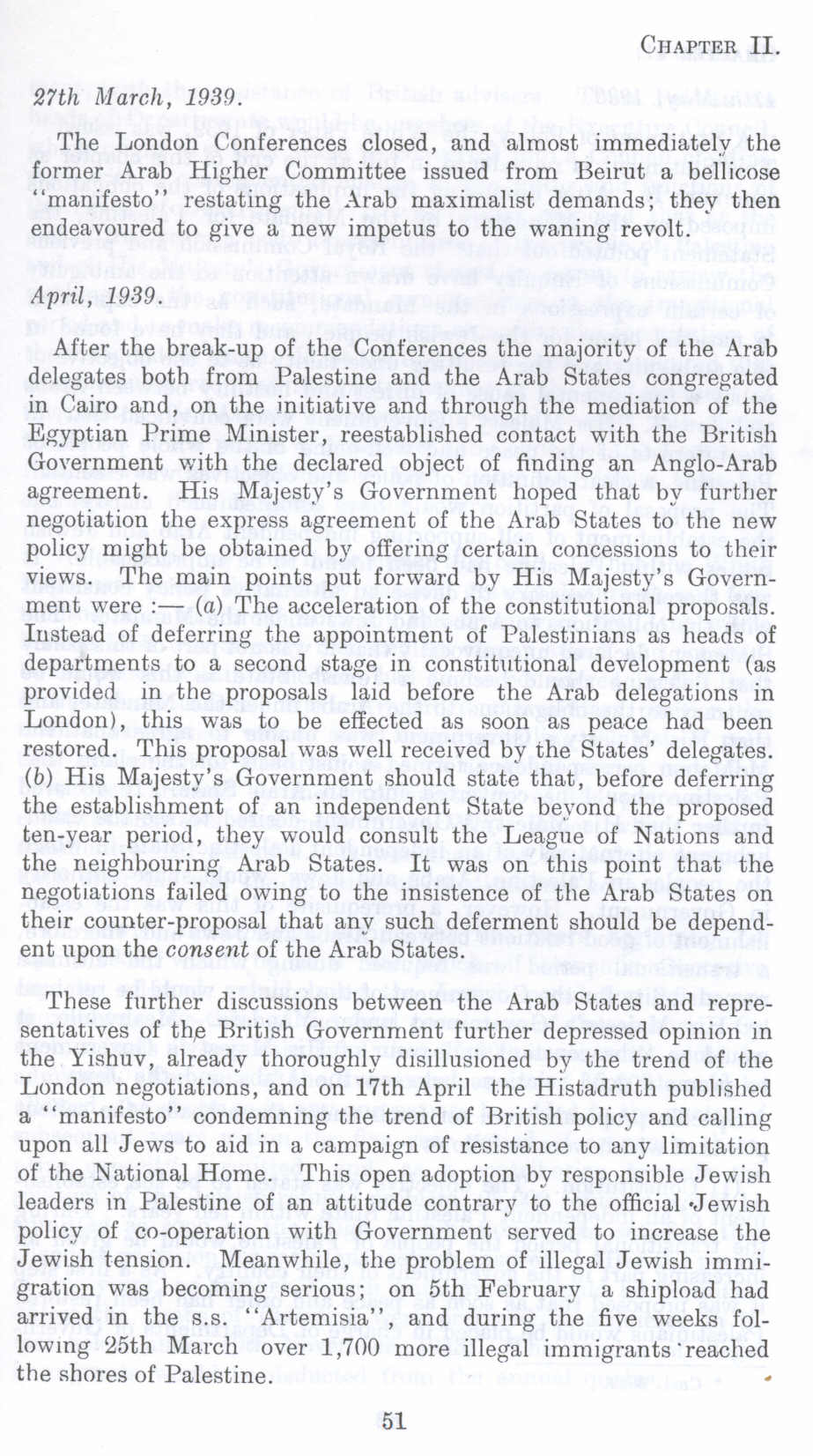| Prev | Next |  |
| Prev | Next |
| PalestineRemembered | About Us | Oral History | العربية | |
| Pictures | Zionist FAQs | Haavara | Maps | |
| Search |
| Camps |
| Districts |
| Acre |
| Baysan |
| Beersheba |
| Bethlehem |
| Gaza |
| Haifa |
| Hebron |
| Jaffa |
| Jericho |
| Jerusalem |
| Jinin |
| Nablus |
| Nazareth |
| Ramallah |
| al-Ramla |
| Safad |
| Tiberias |
| Tulkarm |
| Donate |
| Contact |
| Profile |
| Videos |
British Mandate: A Survey of Palestine: Volume I - Page 51. February-April, 1939, The Royal Commission, the Partition Commission, and the White Paper of May, 1939. |
Disclaimer
The above documents, article, interviews, movies, podcasts, or stories reflects solely the research and opinions of its authors. PalestineRemembered.com makes its best effort to validate its contents.


Post Your Comment
*It should be NOTED that your email address won't be shared, and all communications between members will be routed via the website's mail server.
27th March, 1939.
The London Conferences closed, and almost immediately the former Arab Higher Committee issued from Beirut a bellicose "manifesto" restating the Arab maximalist demands; they then endeavoured to give a new impetus to the waning revolt.
April, 1939.
After the break-up of the Conferences the majority of the Arab delegates both from Palestine and the Arab States congregated in Cairo and, on the initiative and through the mediation of the Egyptian Prime Minister, reestablished contact with the British Government with the declared object of finding an Anglo-Arab agreement. His Majesty's Government hoped that by further negotiation the express agreement of the Arab States to the new policy might be obtained by offering certain concessions to their views. The main points put forward by His Majesty's Government were :- (a) The acceleration of the constitutional proposals. Instead of deferring the appointment of Palestinians as heads of departments to a second stage in constitutional development (as provided in the proposals laid before the Arab delegations in London), this was to be effected as soon as peace had been restored. This proposal was well received by the States' delegates. (b) His Majesty's Government should state that, before deferring the establishment of an independent State beyond the proposed ten-year period, they would consult the League of Nations and the neighbouring Arab States. It was on this point that the negotiations failed owing to the insistence of the Arab States on their counter-proposal that any such deferment should be dependent upon the consent of the Arab States.
These further discussions between the Arab States and representatives of the British Government further depressed opinion in the Yishuv, already thoroughly disillusioned by the trend of the London negotiations, and on 17th April the Histadruth published a "manifesto" condemning the trend of British policy and calling upon all Jews to aid in a campaign of resistance to any limitation of the National Home. This open adoption by responsible Jewish leaders in Palestine of an attitude contrary to the official -Jewish policy of co-operation with Government served to increase the Jewish tension. Meanwhile, the problem of illegal Jewish immigration was becoming serious; on 5th February a shipload had arrived in the s.s. "Artemisia", and during the five weeks follow mg 25th March over 1,700 more illegal immigrants "reached the shores of Palestine.
Page 51